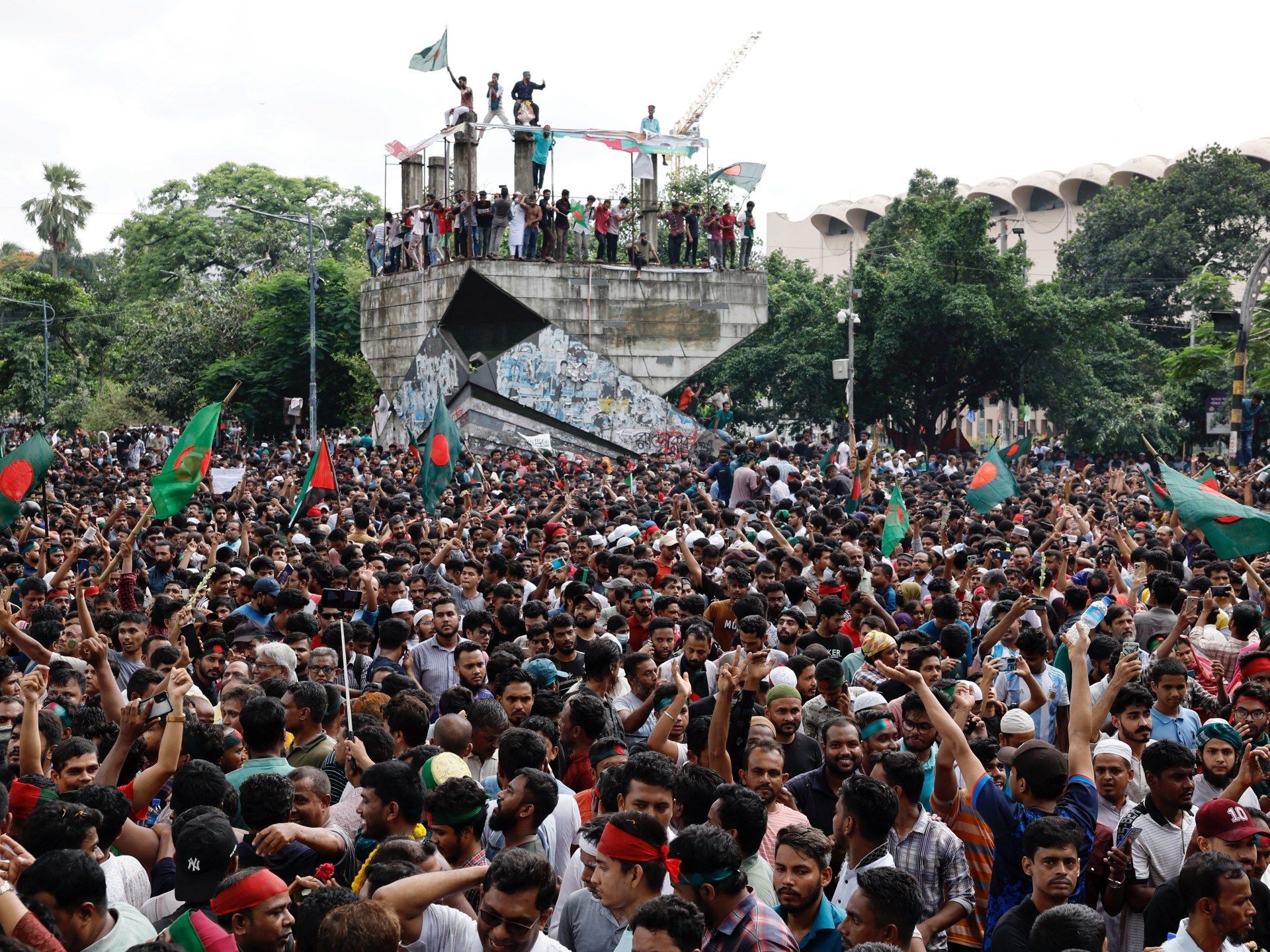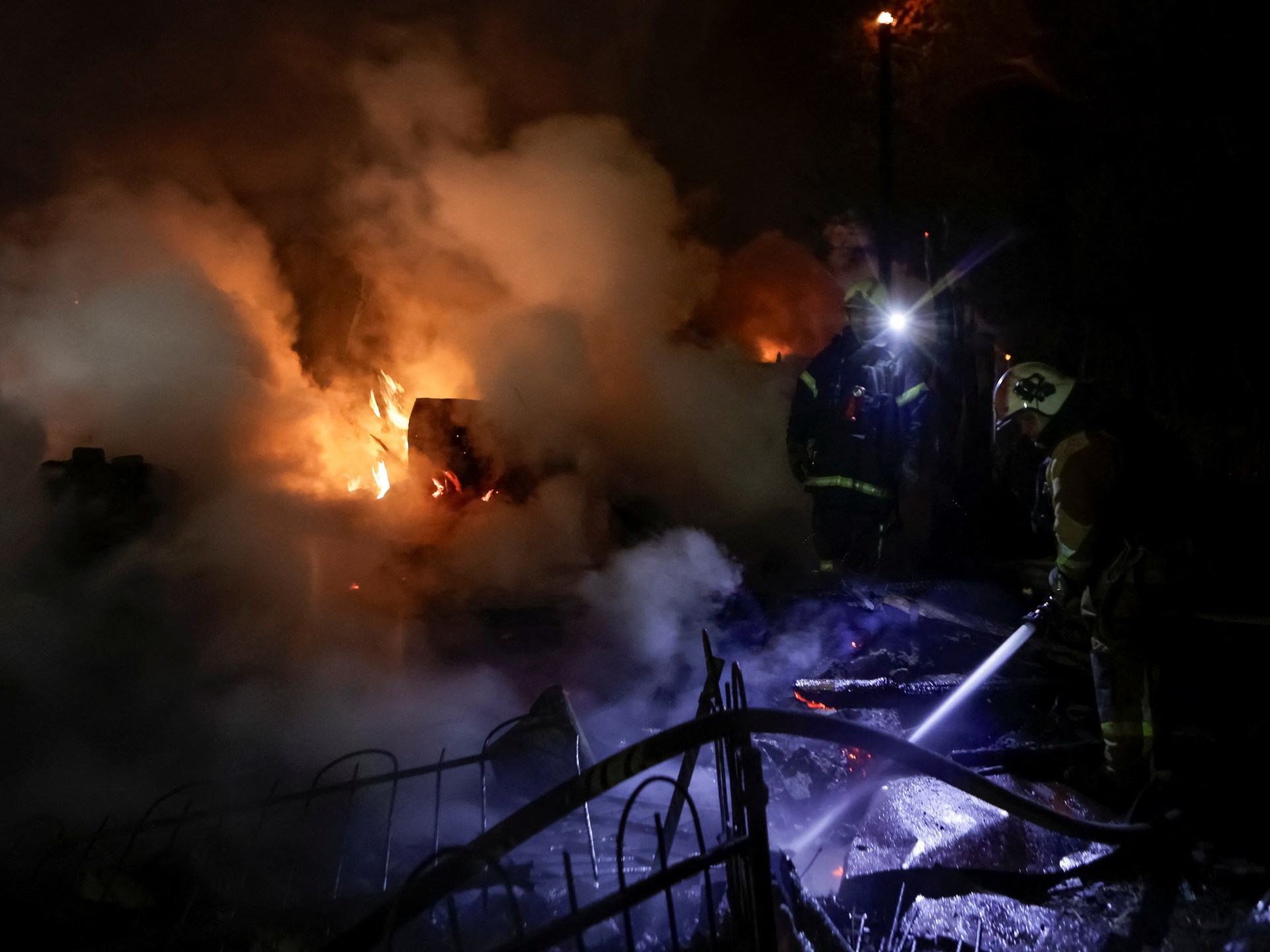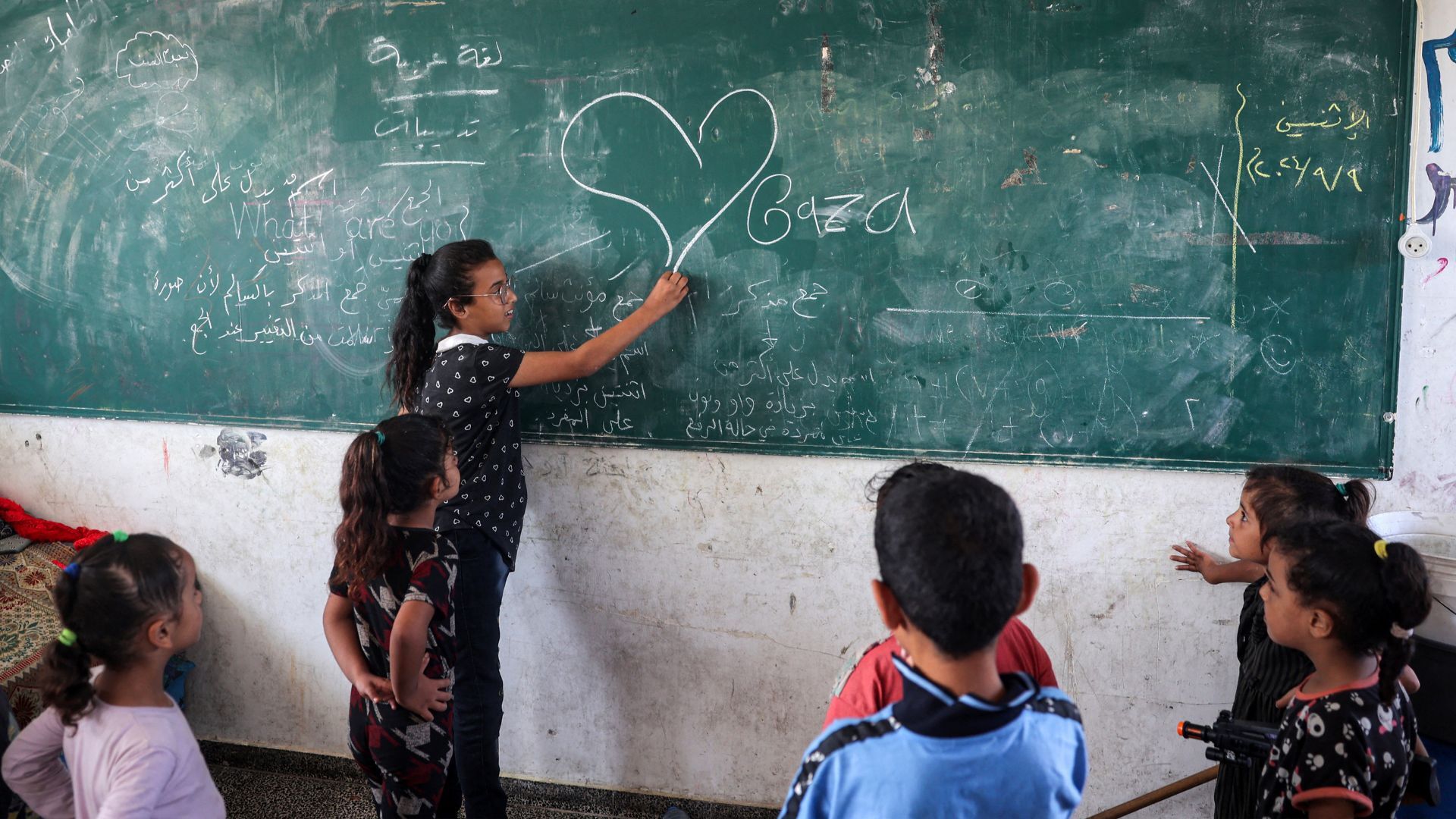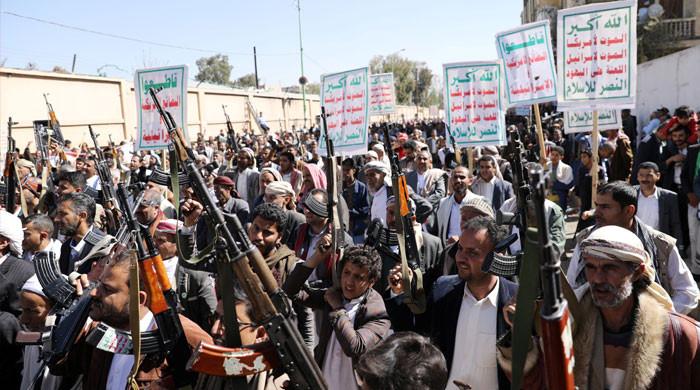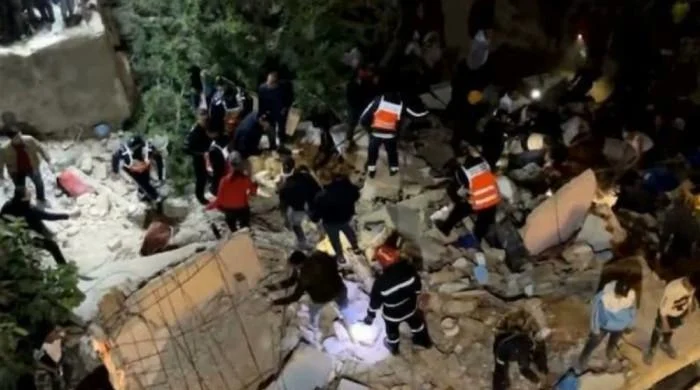Sheikh Hasina's departure appears to have defused high tensions in Dhaka, where more deadly protests were feared on Monday.
Bangladeshi Prime Minister Sheikh Hasina has resigned and fled the country amid ongoing protests.
The country's veteran leader boarded a military helicopter, an aide told Al Jazeera, after crowds ignored a nationwide curfew to storm the prime minister's palace in Dhaka on Monday.
Nearly 300 people have been killed amid weeks of protests that authorities have sought to suppress. After a night of deadly violence that killed nearly 100 people on Sunday, tensions remained high on Monday as protesters called for a march on Dhaka and the military prepared to address the nation.
However, by early afternoon, media reported that the mood on the streets had changed to one of celebration after news of Hasina's departure spread.
In an address to the nation, General Waker-Uz-Zaman, the Army Chief of Staff, confirmed that the prime minister had resigned and that an interim government would now lead the country.
He urged citizens to maintain confidence in the army, which, he said, will bring peace back to the country.
“We will also ensure that justice is served for every death and crime that occurred during the protests,” he said, calling on the public to be patient and to cease any acts of violence and vandalism.
“We have invited representatives of all the main political parties and they have accepted our invitation and have committed to working with us,” the general added.
National television footage showed thousands of people storming the prime minister's official residence.
It also showed large crowds of protesters lining the streets in jubilant scenes as news of Hasina's departure began to spread.
Al Jazeera's Tanvir Chowdhury, reporting from Shahbag Square, the epicentre of the student protesters, said he had “never witnessed anything like this” in the capital.
“Everyone is celebrating, not just students but people from all walks of life. They said this had to happen, there was nothing we could say, democracy was suppressed and now we are free,” Chowdhury said. The protesters’ message is that whoever comes to power next “will now know that no kind of dictatorship or mismanagement will be tolerated and that the students will decide,” he said.
Protests in the country began a few months ago over the government's controversial employment quotas. They soon turned into a nationwide unrest and an unprecedented uprising against Hasina and her ruling party, the Awami League.
Now that she is gone and the army has promised an interim government, the military has “a very difficult task ahead,” said Irene Khan, the UN special rapporteur.
“We all hope for a peaceful transition and accountability for all the human rights violations that have taken place recently, including the killing of some 300 people in the past three weeks,” Khan told Al Jazeera.
“Bangladesh has, of course, a huge task ahead of it. It is no longer the perfect example of sustainable development. The previous government had driven this country into despair and there will be a lot of work to do to rebuild it, but above all, I think it is extremely important that the army respects human rights.”

